Oil and gas in an age of energy dominance
Finding a responsible way to meet a nation’s appetite Read more
Oil and gas in an age of energy dominance
Finding a responsible way to meet a nation’s appetite
Trout Unlimited has long extolled the benefits of responsible energy development in order to minimize and avoid impacts to cold-water fisheries. The idea is simple: With sensible policies and practices, our nation’s energy needs can be met without jeopardizing trout, salmon or their watersheds.
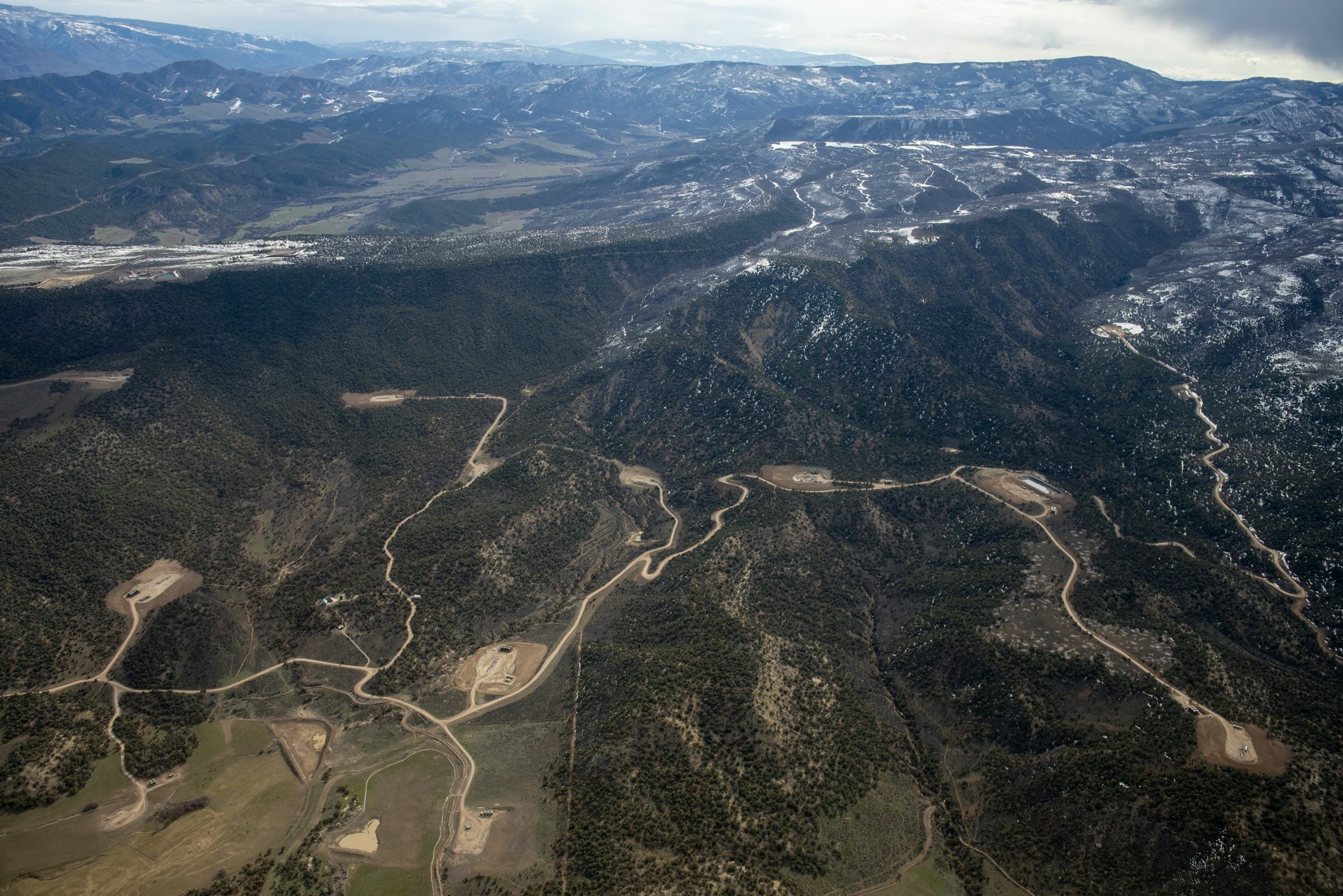
Oil and gas fuels our economy and lives, but it can come at a significant cost to the land. Trout Unlimited works to ensure that it is done responsibly.
More than a decade ago, Trout Unlimited joined land managers, planners, scientists and fish and wildlife experts in offering a series of proposals to protect fish and wildlife habitat. Called Sportsmen for Responsible Energy Development, the coalition recommended that planning be conducted at a landscape scale, that effects to habitat and water quality be carefully monitored, that site reclamation be prioritized, and that energy policy be based on sound science. In some special places with irreplaceable fish and wildlife values, we have also advocated that the only responsible development is no development at all. These are the principles we’ve applied in our backyards and in Washington, D.C.
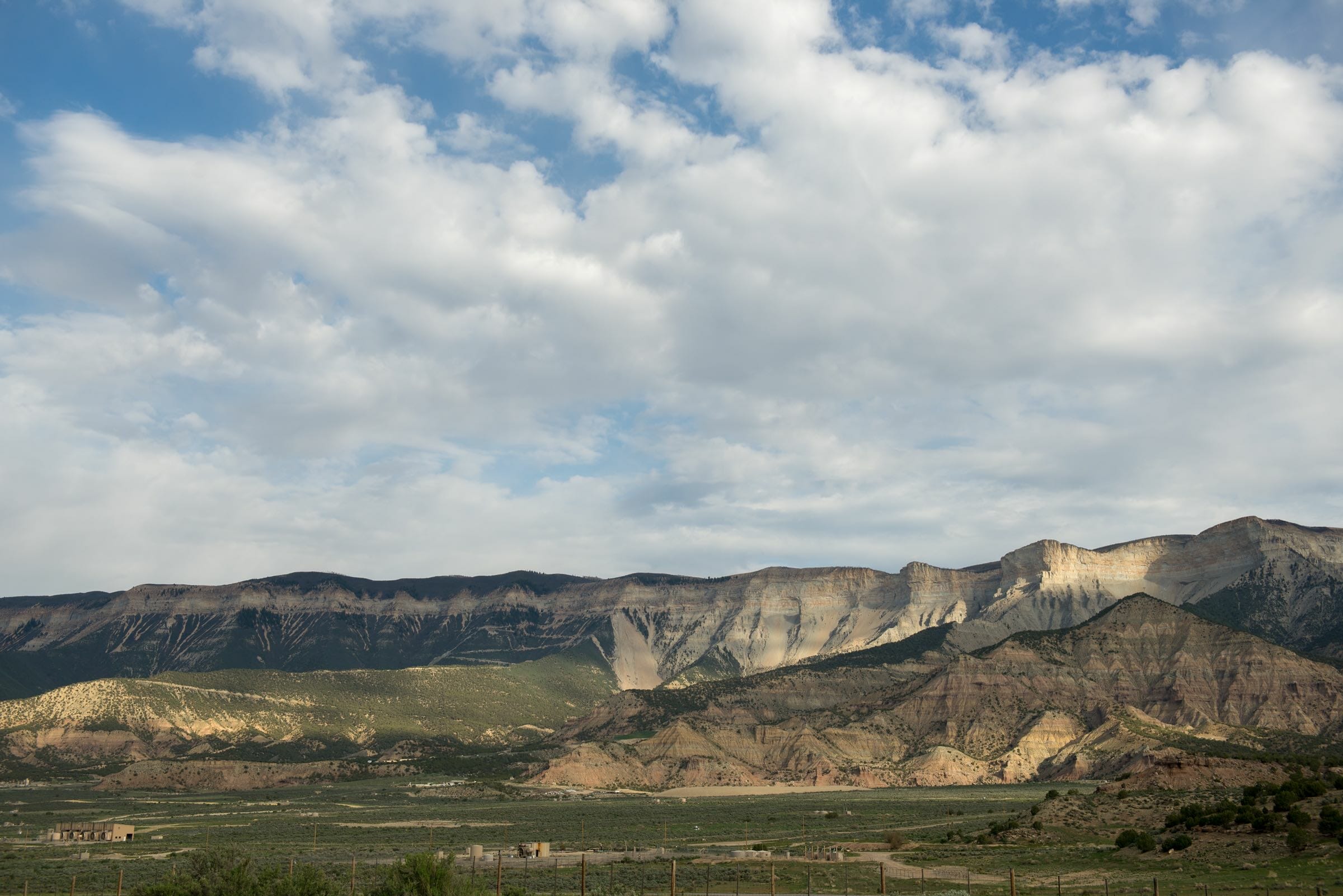
Here’s the caption
Looking ahead, collaboration with affected stakeholders is more important than ever, but we’ve demonstrated what’s possible. A 2015 joint editorial in The Hill by Trout Unlimited and Bill Barrett Corporation sums up that path forward:
It is imperative for all parties to engage, up front, in Bureau of Land Management’s process with respect both for the importance of America’s public lands for fish, wildlife, and recreation, and for the benefits of domestic energy development. In practice, this means application of greater precision when making leasing decisions to better identify lands that are both ‘too special to develop’, and those with greatest potential to support our nation’s energy needs.
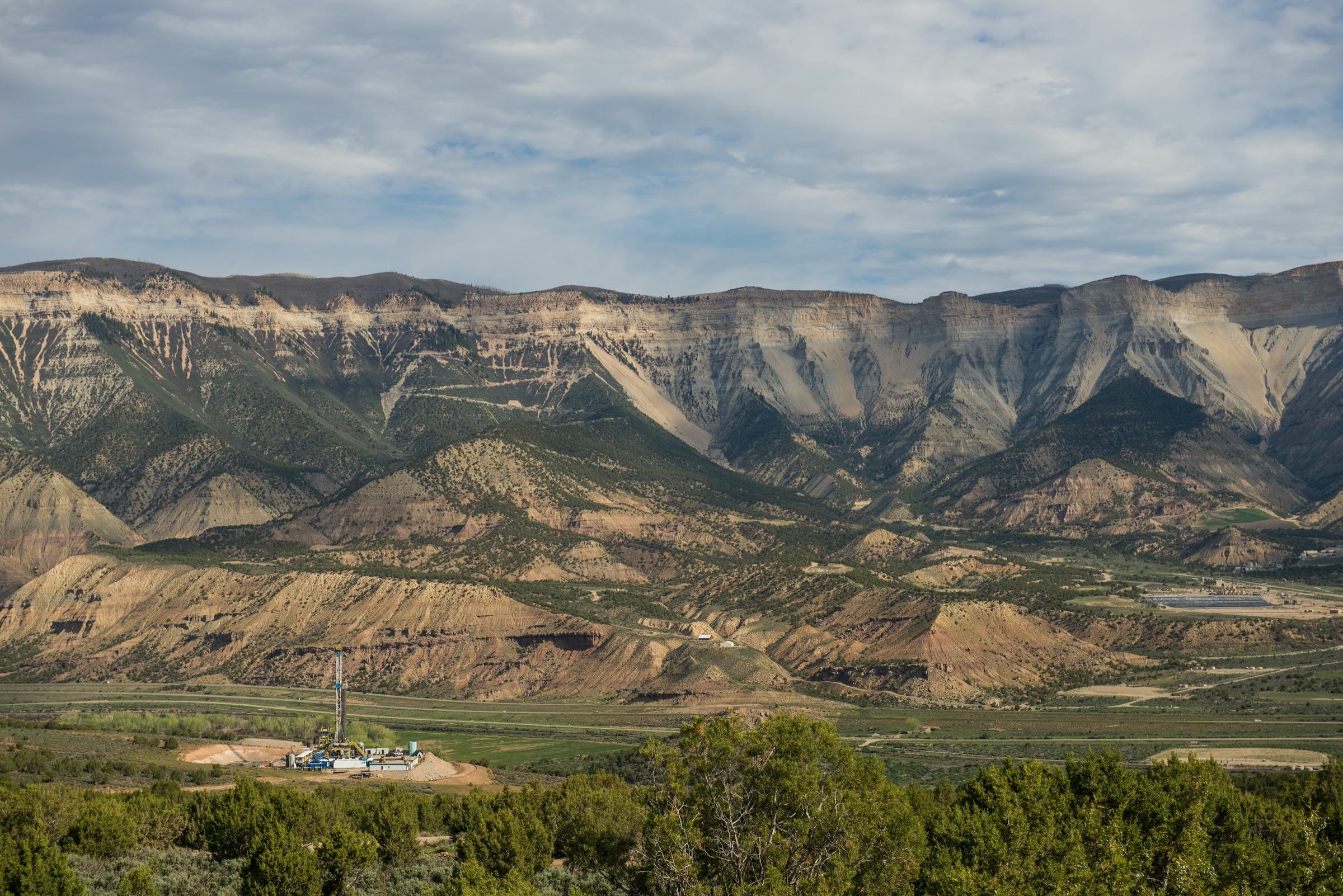
Here’s the caption
Responsible energy development requires careful planning and a commitment from stakeholder groups, the public, and decision – makers to get it right. The future is one that will be built on clean energy, but as long as fossil fuels are developed, we’ll be here to help strike the right balance.
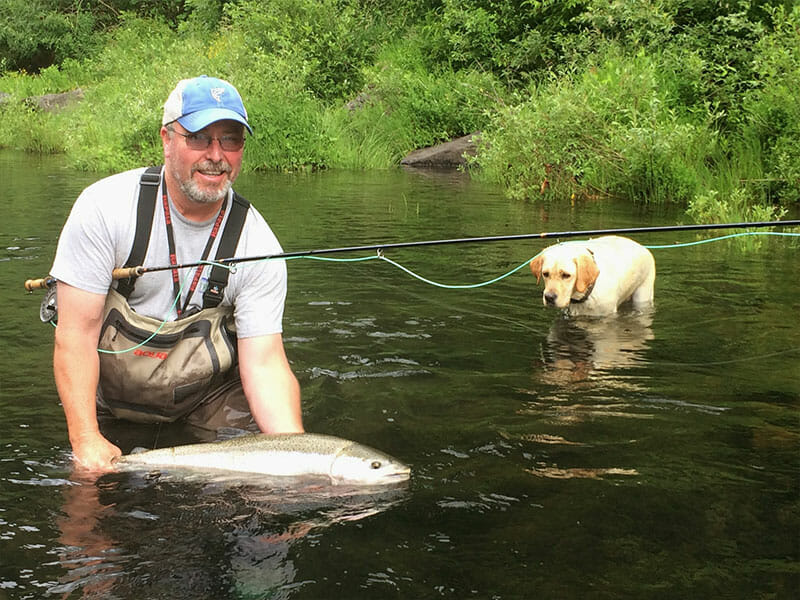
TROUT PEOPLE
Dean Finnerty
Many years ago, Dean Finnerty showed up for his new job as a police dispatch officer in the scenic Cascade Range town of Oakridge, Oregon, driving what had been his mother’s 1978 Oldsmobile Cutlass nicknamed the Tuna Clipper, towing a wooden drift boat. The image was symbolic of the way Finnerty has spent his life—everything is balanced between work, family, and the gift that is the spiritual nature of nature.
Those first years in dispatch, Finnerty found equilibrium between work and cathartic evening float trips down the Upper Williamatte River with a new woman he was dating named Brenda. Those first dates turned into a marriage, five sons and a lifetime together. Later, Finnerty and Brenda started their family in Cottage Grove south of Eugene. Finnerty worked for that city’s force in a number of capacities from leading SWAT teams, to undercover narcotics to patrol.
Nature—hunting and fishing—are as much a part of Finnerty’s blood as plasma, and to ensure that he spent enough time hunting and fishing, he started a guiding business, sometimes working night shifts in law enforcement and day shifts on the water. Guiding, in fact, was something he’d done before he’d been able to drive. “I started working at Larry’s Sporting Goods in Gresham, Oregon, when I was 12 in 1976,” said Finnerty. “Pretty soon, I was guiding clients. I would hop in their car, with their boat, and go out and spend a day on the Sandy River and get paid for that. Could you imagine doing that today?”
At Larry’s, Finnerty got paid by the dozen for hand-tying flies after school. He’d work until seven at night, and then leave and do homework. The manager of the store let him charge other sporting goods on credit until that came to a screeching halt after Finnerty’s father discovered basically a mini sporting goods store piled up in a room where most kids of the era might have hoarded baseball cards or model airplanes.
Eventually, Finnerty guided as many as 180 days a year, gave casting seminars at sports shows, and occasionally donated a guided trip to a nonprofit conservation organization.
“I think guiding really helped me to maintain my humanity,” said Finnerty. “I just saw so many of my fellow officers become jaded and cynical, but when I was out on the water, I was able to get away from all of that and just find a good, grounded balance. Sometimes, you see the worst in people in law enforcement, but then I’d go out on the water and see the best in people. It really helped.”
In 2013, Finnerty retired for good and even quit rowing for pay too, when he came to work for Trout Unlimited, first as a field organizer, and then as the director of protection policy in Oregon and Washington, including the Wild Steelhead Initiative.
“I didn’t even know there were jobs like this out there,” said Finnerty. “I’d always wanted to give back. Occasionally, I found a way to donate a guided trip or something, but until I got the Trout Unlimited job, it was hard. More than anything, Brenda and I wanted to set an example for our sons, just model integrity, honesty, and truthfulness. You ask yourself what do you want to leave for your kids and Trout Unlimited has really helped me do all of that and leave something amazing for future generations.”
1
2
3
4
Growth and change
- Innovation and conservation
- Playing the long game
- Off Road Vehicle and Sportsmen Ride Right
- Oregon and Arizona Mineral Withdrawals
- Overcoming congressional gridlock with public lands planning
- Working in state legislatures when Washington, DC, is broken
- The importance of national monuments
- Fight against selling state land
- Alaska Tongass National Forest
- Alaska Pebble Mine
- Utah Roadless
- Washington Steelhead fishing regulation changes
- Land and Water Conservation Fund
5